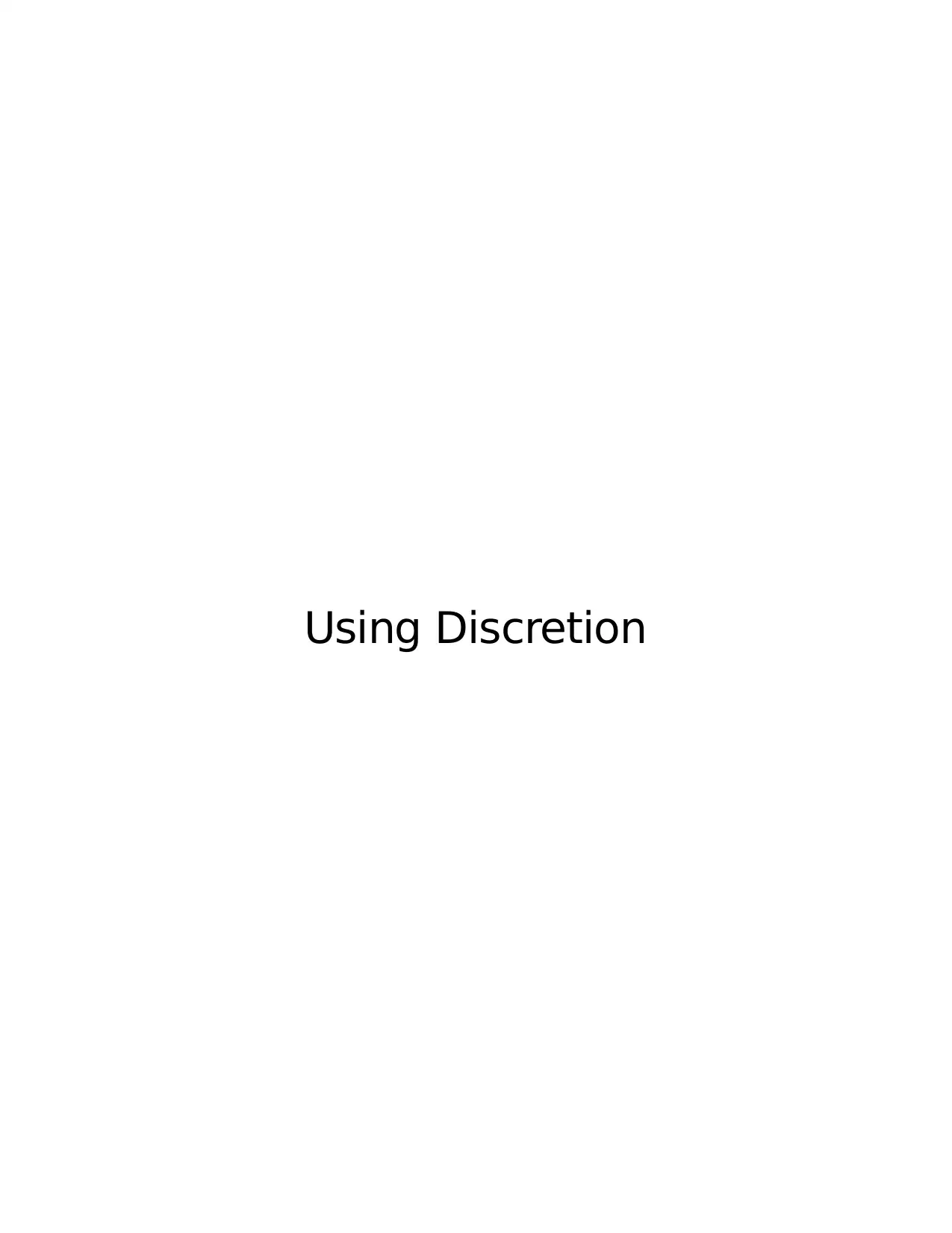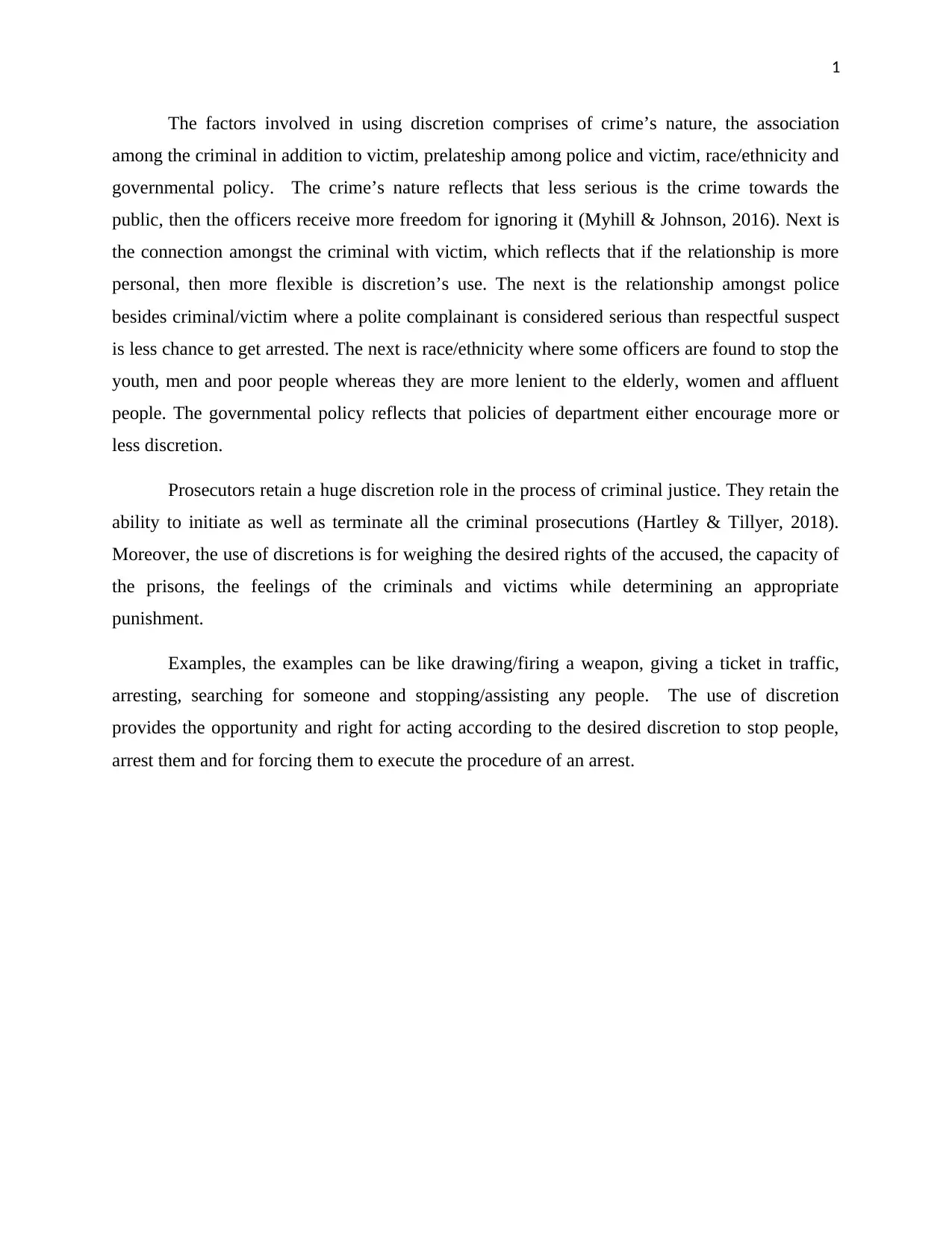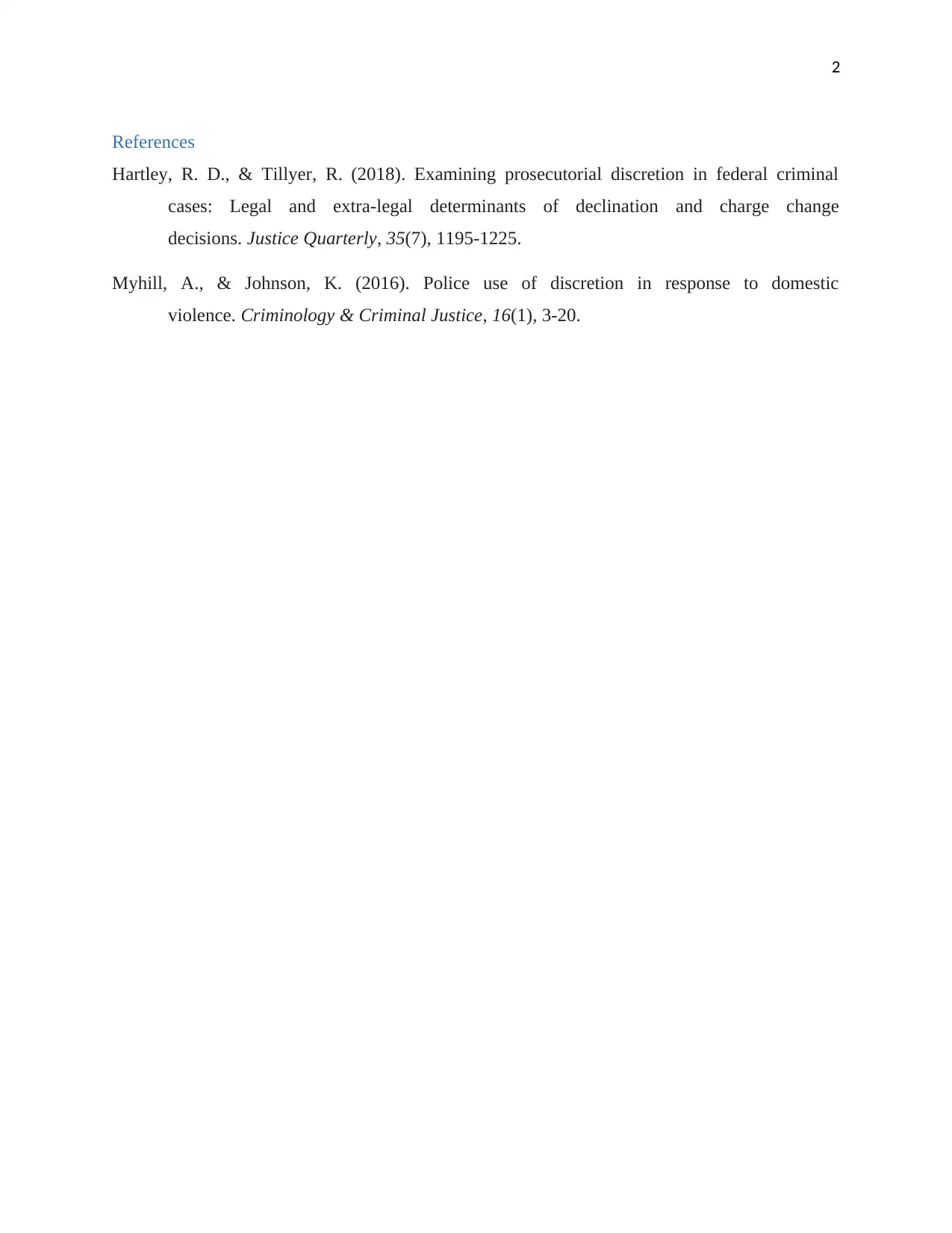Discretion in Criminal Justice: Factors, Examples, and Impact
VerifiedAdded on 2022/08/20
|3
|380
|41
Homework Assignment
AI Summary
This assignment examines the concept of discretion within the criminal justice system, analyzing its various facets and implications. It delves into the factors influencing discretionary decisions, including the nature of the crime, the relationship between the criminal and the victim, and the relationship between the police and the victim. The assignment also considers the impact of race/ethnicity and governmental policies on discretion. Furthermore, it highlights the role of prosecutors in initiating and terminating criminal prosecutions. The use of discretion is illustrated with examples like drawing a weapon, issuing traffic tickets, and making arrests. The assignment underscores the importance of balancing the rights of the accused, prison capacity, and the feelings of criminals and victims when determining appropriate punishments. This analysis provides a comprehensive overview of discretion's role in shaping legal outcomes.
1 out of 3








![[object Object]](/_next/static/media/star-bottom.7253800d.svg)